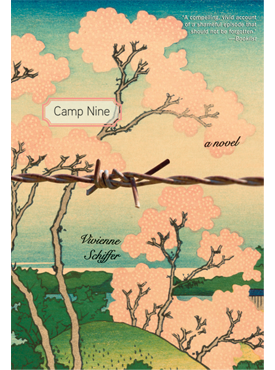2013 Selection, If All Arkansas Read the Same Book
On February 19, 1942, President Franklin D. Roosevelt signed Executive Order 9066, authorizing the U.S. military to ban anyone from certain areas of the country, with primary focus on the West Coast. Eventually the order was used to imprison 120,000 people of Japanese descent in incarceration camps such as the Rohwer Relocation Center in remote Desha County, Arkansas.
This time of fear and prejudice (the U.S. government formally apologized for the relocations in 1982) and the Arkansas Delta are the setting for Camp Nine. The novel’s narrator, Chess Morton, lives in tiny Rook Arkansas. Her days are quiet and secluded until the appearance of a “relocation” center built for what was, in effect, the imprisonment of thousands of Japanese Americans.
Chess’s life becomes intertwined with those of two young internees and an American soldier mysteriously connected to her mother’s past. As Chess watches the struggles and triumphs of these strangers and sees her mother seek justice for the people who briefly and involuntarily came to call the Arkansas Delta their home, she discovers surprising and disturbing truths about her family’s painful past.
The Lexile Level for Camp Nine is 950L.



